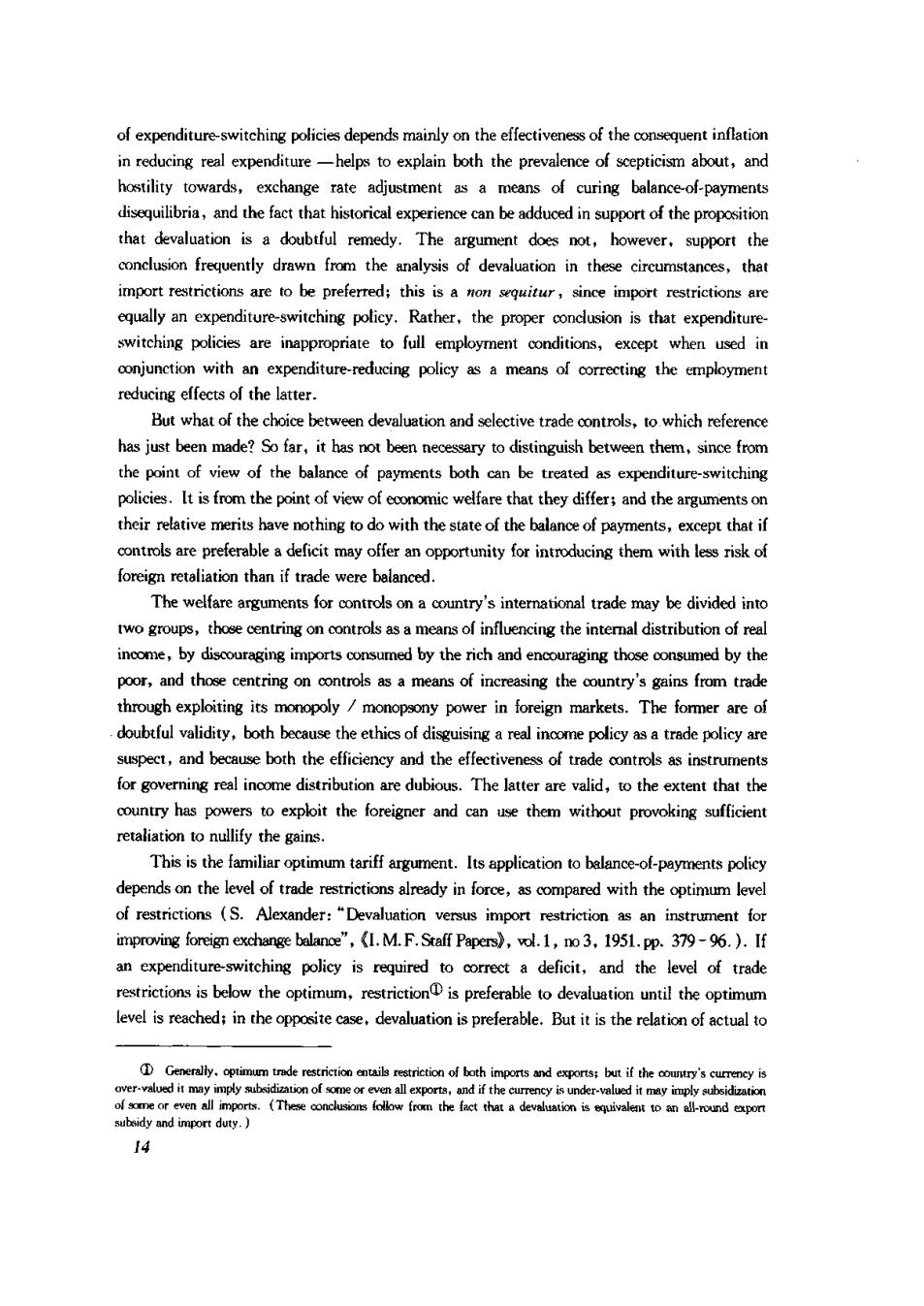正在加载图片...

of expenditure-switching policies depends mainly on the effectiveness of the consequent inflation in reducingreal expenditure-helpsto explain both the prevalence of scepticism about,and hostility towards,exchange rate adjustment as a means of curing balance-of-payments disequilibria,and the fact that historical experience can be adduced in support of the proposition that devaluation isa oubful remedy.The argumen does not,however.support the conclusion frequently drawn from the analysis of devaluation in these circumstances,that import restrictions are to be preferred;this is a onqr,since import restrictions are qually an expenditure-switching policy.Rather,the proper ousion is that expenditure switching policies are inappropriate to full employment conditions,except when used in oonjunction with an expenditure-reducing policy as a means of correcting the employment educing the atter But what of the choice between devaluation and selective trade controls.to which reference has just been made?So far,it has not been necessary to distinguish between them,since from the point of view of the balance of payments both can be treated as expenditure-witchin policies.It is from the point of view of economic welfare that they differ;and the argumentson their relative merits haveothing todo with the stateof the balance of payments,except that if foreign retaliation than if trade were balanced. The welfare arguments for contros on a country's international trade may be divided into wogrou,influencing the intemal distribution of rea income,by discouraging imports consumed by the rich and encouraging those consumed by the ntry's gains from trade doubtful validity,both because the ethics of disguising a real income policy as a trade policy are suspect and be both the and the for governing real income distribution are dubious.The latter are valid,to the extent that the country has powers to explit the foreigner and can use them without provoking sufficient nullify the gains. This is the familiar optimum tariff argument.Its application to bance-of-payments policy depends on the level of trade restrictions already in force,as compared with the optimum level ofrestrictions (S.Alexander:"Devaluation versus import ion ent for improving foreign exchange balance",(1.M.F.Saff Papers),vl.1,n3.1951.pp.379-9.).If an expenditure-switching policy is required to orrect a deficit,and the level of trade below the the optimum evel is reached:in the opposite case,devaluation is preferable.But it is the relation of actual to ry's currency s.(These oonclusions foliow from the fact that a devaluation is to an all-round expor